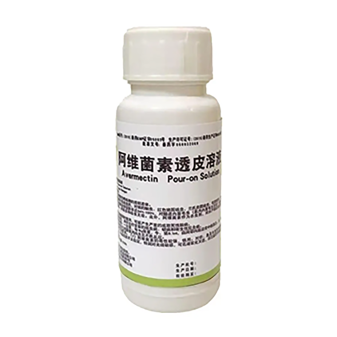- Afrikaans
- Albanian
- Amharic
- Arabic
- Armenian
- Azerbaijani
- Basque
- Belarusian
- Bengali
- Bosnian
- Bulgarian
- Catalan
- Cebuano
- Corsican
- Croatian
- Czech
- Danish
- Dutch
- English
- Esperanto
- Estonian
- Finnish
- French
- Frisian
- Galician
- Georgian
- German
- Greek
- Gujarati
- Haitian Creole
- hausa
- hawaiian
- Hebrew
- Hindi
- Miao
- Hungarian
- Icelandic
- igbo
- Indonesian
- irish
- Italian
- Japanese
- Javanese
- Kannada
- kazakh
- Khmer
- Rwandese
- Korean
- Kurdish
- Kyrgyz
- Lao
- Latin
- Latvian
- Lithuanian
- Luxembourgish
- Macedonian
- Malgashi
- Malay
- Malayalam
- Maltese
- Maori
- Marathi
- Mongolian
- Myanmar
- Nepali
- Norwegian
- Norwegian
- Occitan
- Pashto
- Persian
- Polish
- Portuguese
- Punjabi
- Romanian
- Russian
- Samoan
- Scottish Gaelic
- Serbian
- Sesotho
- Shona
- Sindhi
- Sinhala
- Slovak
- Slovenian
- Somali
- Spanish
- Sundanese
- Swahili
- Swedish
- Tagalog
- Tajik
- Tamil
- Tatar
- Telugu
- Thai
- Turkish
- Turkmen
- Ukrainian
- Urdu
- Uighur
- Uzbek
- Vietnamese
- Welsh
- Bantu
- Yiddish
- Yoruba
- Zulu
des . 16, 2024 22:01 Back to list
dexamethasone sodium phosphate injection uses
The Uses of Dexamethasone Sodium Phosphate Injection
Dexamethasone sodium phosphate injection is a powerful corticosteroid used in various medical settings to treat a wide array of conditions. As a synthetic derivative of dexamethasone, it offers a water-soluble formulation that enhances its efficacy and convenience for clinical use. This article explores the diverse applications of dexamethasone sodium phosphate injection, shedding light on its benefits and potential side effects.
Mechanism of Action
Dexamethasone sodium phosphate works primarily by mimicking the effects of hormones produced by the adrenal glands. Corticosteroids are known for their potent anti-inflammatory and immunosuppressive properties. When introduced into the body, dexamethasone binds to glucocorticoid receptors, modulating gene expression. This process results in the suppression of inflammatory mediators and immune system responses, making it particularly useful in treating conditions marked by excessive inflammation or immune activation.
Medical Uses
1. Anti-Inflammatory Treatment One of the primary uses of dexamethasone sodium phosphate injection is to reduce inflammation in various medical conditions. It is effective in treating inflammatory diseases such as rheumatoid arthritis, lupus, and inflammatory bowel disease. By alleviating symptoms like swelling, pain, and redness, this medication helps improve patients' quality of life.
2. Allergic Reactions Dexamethasone is often employed to manage severe allergic reactions, including anaphylaxis and angioedema. In such situations, prompt administration can help control the immune response, reducing the risk of life-threatening complications.
3. Respiratory Conditions In acute respiratory distress, dexamethasone sodium phosphate can provide relief. It is frequently used in the management of conditions such as asthma exacerbations and chronic obstructive pulmonary disease (COPD) flares. The injection helps to reduce airway inflammation, facilitating easier breathing and improved lung function.
4. Oncology The use of dexamethasone in oncology is multifaceted. It is frequently utilized as part of chemotherapy regimens to mitigate side effects such as nausea and vomiting. Additionally, it can enhance the effectiveness of certain cancer treatments and is sometimes prescribed to manage symptoms associated with terminal illnesses.
dexamethasone sodium phosphate injection uses

5. Neurological Indications Dexamethasone sodium phosphate also plays a role in treating neurological conditions. It is often used in patients with brain tumors or those experiencing increased intracranial pressure. By reducing inflammation in the brain, it helps alleviate symptoms and can improve patient outcomes.
6. Postoperative Care In the context of surgery, dexamethasone is often administered to reduce the risk of postoperative nausea and vomiting. This application is particularly relevant in major surgeries and can significantly enhance patient recovery experiences.
Administration and Dosage
Dexamethasone sodium phosphate injection can be administered intravenously or intramuscularly, allowing for flexible delivery tailored to the patient’s condition. The dosage varies based on the severity and type of condition being treated, as well as the patient's response to the medication. Careful monitoring during and after administration is essential to ensure safety and efficacy.
Side Effects and Precautions
Despite its benefits, dexamethasone sodium phosphate can cause side effects, particularly with long-term use. Common side effects include increased appetite, weight gain, insomnia, and mood swings. More serious risks involve potential complications such as infections, blood sugar elevation, and gastrointestinal issues. Prolonged use of corticosteroids can also lead to adrenal suppression, necessitating careful management during discontinuation.
Patients with specific conditions, such as those with certain infections, peptic ulcers, or uncontrolled diabetes, should use dexamethasone with caution. It is crucial for healthcare providers to evaluate potential risks versus benefits when prescribing this medication.
Conclusion
Dexamethasone sodium phosphate injection is a versatile, potent medication with numerous applications across various medical disciplines. Its anti-inflammatory and immunosuppressive properties make it invaluable in treating a range of conditions from allergies to chronic diseases. While it offers significant therapeutic advantages, careful consideration of potential side effects and contraindications is essential to ensure patient safety and optimize treatment outcomes. As research continues to expand on its uses, dexamethasone will undoubtedly remain a cornerstone of modern medical therapy.
-
Guide to Oxytetracycline Injection
NewsMar.27,2025
-
Guide to Colistin Sulphate
NewsMar.27,2025
-
Gentamicin Sulfate: Uses, Price, And Key Information
NewsMar.27,2025
-
Enrofloxacin Injection: Uses, Price, And Supplier Information
NewsMar.27,2025
-
Dexamethasone Sodium Phosphate Injection: Uses, Price, And Key Information
NewsMar.27,2025
-
Albendazole Tablet: Uses, Dosage, Cost, And Key Information
NewsMar.27,2025













